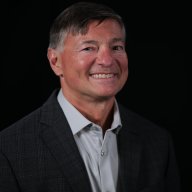
How inflation, supply chain and sustainability could drive efficiency gains
Large enterprises are grappling with supply chain issues, inflation and sustainability issues and two things are clear: The three topics are intertwined and could drive technology-driven productivity and efficiency gains.
Chief executives have been talking about supply chain, inflation and sustainability on a host of earnings conference calls. These large enterprises cut across multiple industries including financial services, consumer product goods, manufacturing, healthcare and technology and are seeing higher input costs and shortages of key materials and components. Those issues could also speed up sustainability efforts.
What is sustainability in business? The process, returns, KPIs and everything you need to know
Add it up and companies will have to balance passing on costs to consumers with preserving operating margins through efficiency efforts. One thing is clear: Companies are betting on technologies including process mining, execution management and automation that can make them more efficient to weather the macroeconomic turmoil. Sustainability will be seen as a way to create more resiliency in the future and save money.
Tesla CEO Elon Musk on the company's first quarter earnings call outlined how the moving parts connect. "We have long-term contracts with suppliers, but those long-term contracts will obviously run out and then the year we'll start to see potentially significant cost increases," said Musk, who noted that refining lithium for batteries is a key supply chain issue. "But the macro is sort of looking at the world as a whole and saying, okay, what does it take for Earth to transition to sustainable energy faster?"
Musk also added that Tesla will be raising prices of electric vehicles to account for higher costs.
This balancing act cuts across industries. Albertsons CEO Vivek Sankaran said the supermarket chain is modernizing its supply chain, data analytics and productivity technology as well as embedding sustainability throughout its operations. Albertsons CFO Sharon McCollam said on the company's first quarter earnings conference call:
We have started framing the next wave of productivity and have already identified $750 million in future savings that we are committing to between fiscal '23 and fiscal '25 in the areas of automation and digital tools, scalable workforce management, modernization of our supply chain and SG&A optimization.
Johnson & Johnson CFO Joseph Wolk said the company is seeing inflation across the enterprise, but its consumer health division is seeing the most. "These external challenges include limited availability and rising prices of certain commodities; as well as increased costs for labor, energy and transportation," he said on the company's first quarter earnings conference call. "Mitigation efforts are underway, including cost improvement initiatives, strategic price increases and contract negotiations with external supply partners."
IBM CEO Arvind Krishna said technology is going to be at the center of managing in the current environment. "Harnessing the power of technologies such as hybrid cloud and AI remains essential as our clients face a number of strategic challenges and opportunities, whether it's competing for talent, supply chain issues, inflation, cybersecurity or geopolitical instability," said Krishna.
Procter & Gamble CFO Andre Schulten said enterprises will need to leverage technology to remain nimble. These companies will also have to remain nimble, said Schulten.
Success in our highly competitive industry requires agility that comes with a mindset of constructive disruption, a willingness to change, adapt and create new trends and technologies that will shape our industry in the future. In the current environment, that agility and constructive disruption mindset are even more important.
How these efforts impact sustainability remains to be seen, but there are executives that see acceleration ahead.
Baker Hughes CEO Lorenzo Simonelli said on the company's first quarter conference call that the company, which operates oil rigs, is seeing "the most challenging supply chain and inflationary environment we have seen in several decades."
However, Simonelli also said current challenges are also likely to accelerate clean energy efforts. Simonelli said:
I think the focus right now in the near term has switched to energy security, reliability and diversity. But we don't believe that sustainability goes away. And in fact, if you look at some of the policies even introduced in Germany, the 2035 Energy Plan still continues focus on sustainability.
We think the current environment will actually accelerate clean energy initiatives, particularly for fuels like hydrogen, which EU is making a large part of its long-term energy plan. What we're seeing from the current situation is that you cannot become too reliant on one country or one source of energy. So, diversity of supply is critical.
More on sustainability:






